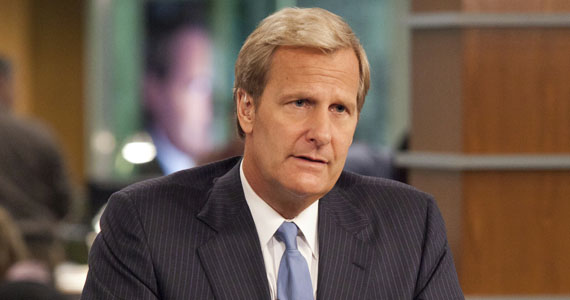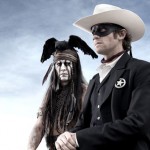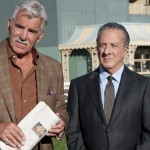Many of the first reviews for Aaron Sorkin's new HBO series The Newsroom hurled similar criticisms at the show: It's preachy. It's hyper-idealized. The characters aren't much more than devices made to deliver politicized speeches. And just based on last Sunday's pilot — the only episode I've seen — there's certainly some validity to those arguments. But there's another complaint that's been repeated in nearly every review I've read: That it's a mistake for Sorkin to set the show two years in the past. (The pilot takes place in 2010, mostly on the day of the BP oil spill in the Gulf of Mexico.) HITFIX television critic Alan Sepinwall wrote, "Dealing with familiar stories from real life also allows Sorkin to use 20/20 hindsight to make his heroes look even smarter, and their opponents dumber" … as if this were somehow a cheat. Some critics have even insinuated that The Newsroom's time shift allows it to shit on the real-world journalists who put in hundreds of hours of legwork to break stories that Sorkin's characters will suss out no time.
I don't get this argument. At all. And that's coming from someone who worked as a newspaper reporter/editor for the better part of a decade. For starters, The Newsroom isn't a news-delivering vehicle, so it doesn't have to play by the same rules as real-world news organizations. It's also not a program designed to serve as a TV-news watchdog (a la The Daily Show), even though some of its storylines will obviously reflect Sorkin's feelings on the current state of the cable-news business. The Newsroom is, first and foremost, a TV drama. And as such, there seem to be very clear story-driven (as opposed to agenda-driven) reasons for setting the show in the past. Watching Will McAvoy, Jeff Daniels' reinvigorated news anchor, cover stories that we all lived through, like the BP oil spill, will register with greater impact than it would if the show were using made-up news events. And by being able to take the long view on how things played out, Sorkin can plot around real-world events to optimal effect.
Also, I'd wager good money the time shift won't always be employed as a trick to make McAvoy look smarter than any news anchor has a right to be. Will is going to blow stories, and when he does, the viewer will be able to identify where and how he's screwing up before Will even has an inkling that something is amiss. There is inherent drama in that. Consider James Cameron's Titanic. We know the boat is going down long before the characters do, and that knowledge magnifies and adds extra significance to each bad or unlucky decision the characters make.
So call The Newsroom a sanctimonious liberal manifesto disguised as a television series if you must. But from strictly a storytelling perspective, I honestly don't see how the time shift will do anything other than help strengthen the show's dramatic spine.












